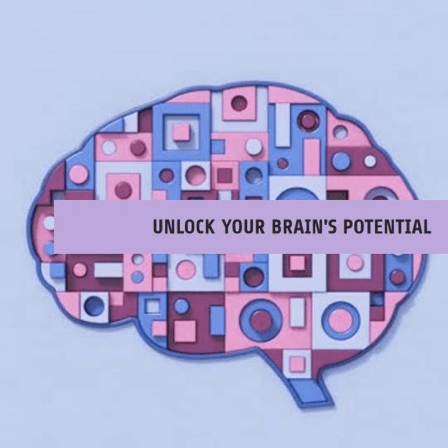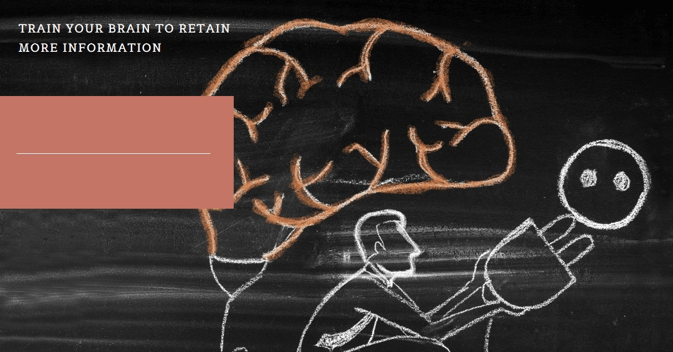10. July 2024
Mastering the Art of Retention: Tips for Memorizing and Recalling Studied Material
We all study for effective learning and retaining information. In this dynamic world of the abundance of distractions and the constant influx of new information, it is not easy to retain what we have studied. Feeling overwhelmed and getting confused with so many details is not uncommon. However, by implementing effective retention strategies, you can improve your learning outcomes. In this article, we will explore various techniques that can help you retain information more effectively while studying.
In this post, we first discuss the problems with retaining lot of learned information and then suggest strategies to overcome the challenges faced.

Why is it hard to retain?
Lack of understanding: First problem faced by all of us is that we scroll through the material again and again and do not understand the content. To retain what we have studied it is important we have conceptually understood the topic.
Too much information and data source: When we have arranged for an overwhelming amount of information, it can be difficult to retain everything. Organising the study and material is imperative to tackle this problem. Gathering many textbooks on the same topics , online materials, notes, videos etc are the main culprit of this issue.
Lack of engagement with the topic or content: If you find yourself losing focus while studying some specific topics, it is a red alert. In these cases it can be challenging to retain information. Negative pre-conceptions about the topic you are studying can be quite harmful. For example, if you associate a topic with notions like difficult, lengthy or boring, that makes it harder to learn and you will end up being phased out while studying.
Lack of Revision: Simply reading or memorising information is not enough for long-term retention. To retain information effectively, it is important to practise and review the material regularly
Stress and anxiety: High levels of stress and anxiety can negatively impact memory and retention. It is important to manage stress levels through techniques such as deep breathing exercises, meditation, and regular physical exercise. Taking care of your overall well-being can improve your ability to retain information.
Tips to retain information better
We now discuss a wide variety of tips that can improve retention.
Complete focus: Attention is one of the major components of memory. In order for information to move from your short-term memory into your long-term memory, you need to actively attend to this information. Try studying when you have a full attention span and minimal distraction of any form. You can select a space where you have the full focus and attention without getting distractions. Try scheduling your study time when you are alert and active.
Structuring and organising information: when we have so much data source around us we need to provide the structure to the information available. Try grouping similar materials and get rid of repetitive materials. It only adds to your distraction. You can use the Vizle Video to PDF converter to quickly go through multiple videos and decide which study material is best for you. This app converts bulky long videos into PDFs/PPTs and you can scroll through the pages and decide what is new or relevant very quickly.
Long Sessions: We are tempted to try to learn everything in one long session. This can unexpectedly backfire and make it harder to remember the information later. Schedule your study sessions strategically, spacing them out over time to reinforce and solidify the information in your memory. Plus, it’s a far more realistic strategy. By breaking your review sessions up into smaller blocks, you’re more likely to stick with it. Don’t undervalue the power of spaced repetition.
Learning techniques: Give yourself time to explore various ways of technique that help you in learning: Use mnemonic devices: Mnemonic devices are memory aids that help you associate new information with something familiar. For example, you can create a rhyme or acronym to remember a list of items or use visual imagery to connect concepts. Mnemonic devices make information more memorable and easier to recall
The Magic of Storytelling: Transform complex information into memorable narratives or vivid stories, weaving together key details and concepts. Our brains are wired to remember stories better than isolated facts. Writing down: Writing uses a different part of the brain than reading. This means that when you take the time to write down a concept during or after reviewing the material, you’ll cover the concept a second time.
Use Multisensory Advantage: Use multiple senses while studying, such as reading out loud, drawing diagrams, or discussing concepts with a study partner, to create stronger memory associations.
Study in Group: Study groups are very effective when we are learning difficult concepts. Being able to bounce ideas and theories around and use your collective knowledge to solve problems is extremely beneficial. In addition, having a study group allows you to ask questions and view things from a perspective that you may not have thought about, which opens up new ways of learning about the same topic.
The Mind Palace technique: Visualize a familiar location and mentally place information you want to remember in specific spots within that location. This technique leverages spatial memory to enhance recall.
The Art of chunking: Break down complex information into smaller, manageable chunks. This technique reduces cognitive load and makes it easier for your brain to encode and recall information.
Active learning: Actively engaging with the material can enhance retention. Instead of passively reading or listening

Repetition and Revision: Give your memory a chance to review key details several times. Repetition is one of the best ways to improve your memory. You can always use different methods of revision.
Teach what you’ve learned: Explaining concepts to others, whether it’s a study group or an imaginary audience, helps reinforce your own understanding and retention of the material. Make flash cards, make notes, use learning from videos and other alternative techniques which help you revise the content quickly and faster.
Elaborative rehearsals: One of the most effective encoding techniques is known as elaborative rehearsal. It is all about connecting new information with things you already know. So if you are learning a new term, you would start by learning the meaning. Then, you might think about how that might fit in with other things you know about the concept and then think of a story or create a mnemonic device to help tie them all together.
Purposeful breaks: Give your brain time to rest and process information by taking short breaks during study sessions. Use this time to engage in relaxing activities or practice mindfulness.
Retrieval practice: Instead of simply reviewing notes, actively test your knowledge by recalling information from memory. Practice with flashcards or create your own quizzes.
Fuel your brain with a healthy lifestyle: Prioritize quality sleep, eat nutritious foods, and manage stress effectively. A healthy body and mind are crucial for optimal memory retention.
The crux of all of these techniques is simply the following idea: how do you make it attractive and easy for yourself to learn a topic? Techniques that help you revise the content as well as retain your attention help bolster your abilities to retain the learnings effectively.
Prioritize Retention techniques
As we discussed above, there are a broad variety of strategies to improve retention. Where do you start?
When prioritizing retention techniques, it is helpful to first consider the nature of the material being studied.
-
For concepts and theories that are heavily verbal or text-based, techniques like elaborative interrogation (asking yourself explanatory questions) and creating mental images can be highly effective. Practice testing through tools like flashcards is also valuable for solidifying definitions, formulas, and key facts.
-
If you’re learning procedural knowledge like math problems or laboratory methods, actively working through examples and attempting practice problems is crucial. View worked examples, create your own practice sets, and then test yourself will work wonders.
-
For visual or spatial topics like anatomy, art, or design, creating graphics like diagrams, mind maps, and demonstrations can embed the information more concretely.
Overall, matching the retention strategy to the fundamental nature of the knowledge - verbal, procedural, visual, etc. - will yield the highest retention benefits. Analyzing your course materials and combining techniques that directly engage with the knowledge type tends to be most effective.
In conclusion, remember that everyone has different learning preferences and strategies that work best for them. It is important to experiment with different techniques and find what works for you. By implementing these strategies, you can improve your ability to retain information while studying and enhance your overall learning experience.
You may also like to read
Learn how Vizle helps you learn deeply from video lectures and makes it easy to revise the lecture notes by extracting both the key visual screnshots and the spoken transcript.
Take notes or listen during lectures ?
How to Convert a Video to PDF?